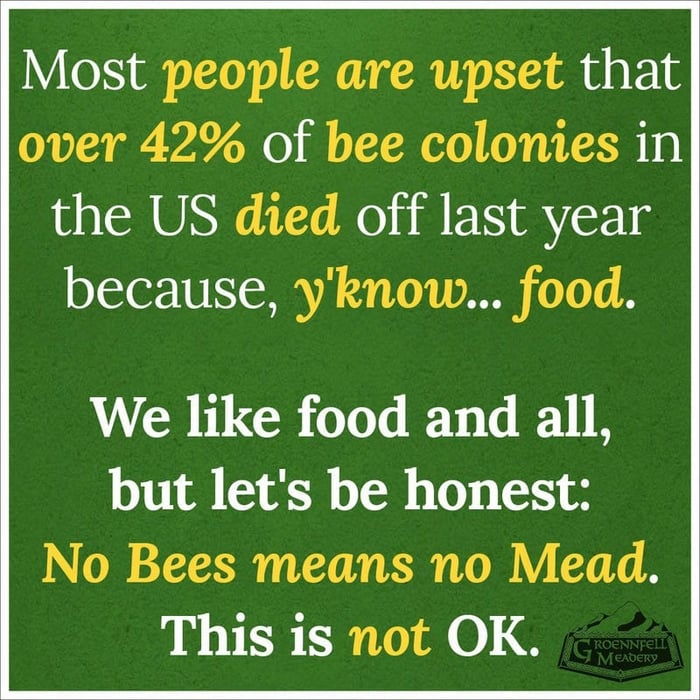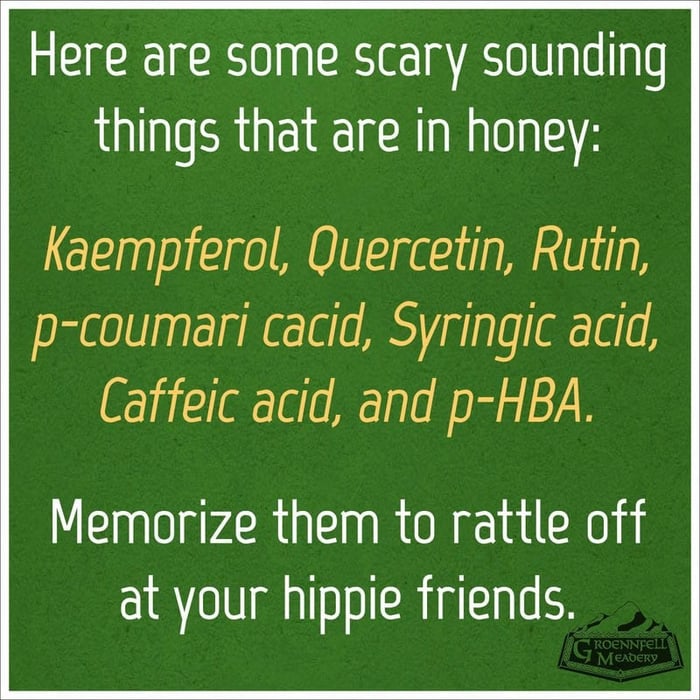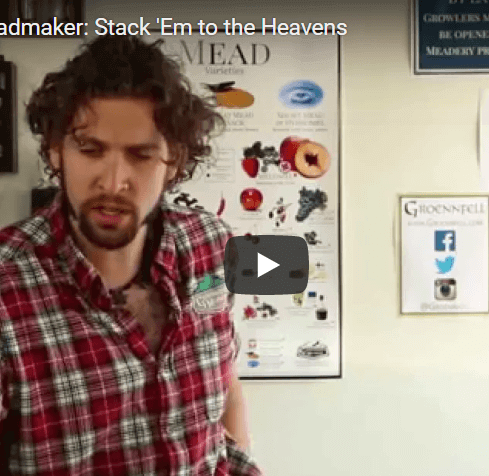Here’s a hint: It’s not the bottle, the label, the case, the shipping, or the mead.
In most cases, it’s the bubbles. And it ain’t ’cuz CO2 is expensive neither (it’s free in many cases). Nope, it’s a weird Federal law that’s almost 120 years old.
With a small winery tax credit (good for the first 100,000 gallons of mead), we pay $0.17/gallon, or about 1.6¢ per bottle in excise tax. If the wine is legally sparkling (more on that in a minute), our cost is $3.40/gallon or 34¢ per bottle. (TTB Info Here.)
That means the same mead with bubbles costs the meadery over 20 times more in taxes. To put it another way: That’s more than the 4-Pack, bottle, label, and cap combined.
Let’s reiterate: 20 TIMES more just because it has bubbles. That’s an order of magnitude, then doubled!
So, how on earth do we sell our product at such a reasonable price with this onerous tax burden for the tiny bubbles?
The answer is easy: put in just the right amount of bubbles.
You see, within the same regulation that mandates this stupendous tax burden, there is also this lovely definition:
Sparkling wine or champagne: An effervescent wine containing more than 0.392 gram of carbon dioxide per 100 milliliters of wine resulting solely from the secondary fermentation of the wine within a closed container. (TTB Regulations Here Check out §24.10.)
The problem is that a lot of professionals don’t even know this little codicil and are paying through the nose for no good reason and chances are good that their meads aren’t above the legal limit. How do we know? That carbonation level is actually standard for several styles of beer and is substantially higher than naturally occurring pettilance.
Furthermore, there is substantial confusion about exactly who has to pay the tax and under what conditions. (For example, what if the mead goes into the keg below the threshold, but the bar serving it pushes it above?)
Having meaderies paying this “bubble tax” unnecessarily is hurting the entire mead market, not to mention consumers who are essentially forking over cash for a misreading of a law. It also sets a bad precedent.
If you’re a consumer and you suspect you’re paying too much, reach out to your meadmaker about this issue; it will help everyone in the long run.
If you’re a meadery who’s been having trouble with the carbonation tax, please don’t hesitate to contact us, we’d love to help everyone make the best, most profitable mead they possibly can!





